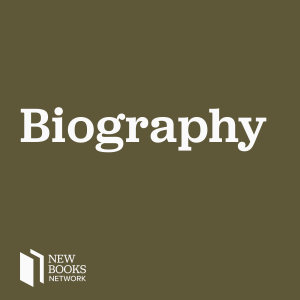
Scott Donaldson, “The Impossible Craft” Literary Biography” (Penn State UP, 2015)
 2016-11-08
2016-11-08
Admiring books that appeal to our hearts and souls, rather often we want to know more about the writers who create them. If a book is a dialogical and communal entity–as readers we also participate in interpreting what we read, adding to and/or subtracting from the meanings of, so to speak, “original” texts and sharing our ideas with others–a portrait of the writer takes the audience to a somewhat different realm. Who creates writers’ portraits? What sides of writers’ lives get exposed, and which ones remain silenced, hushed-hushed, discreet? Who decides what portrait should be (or even must be) produced? And for what purpose? Readers rather often want to know more about people who wrote stories with which they fell in love; stories that they would like to share with their loved ones; stories that inspire them or, although it may sound cliched, change the way they look at life.
Biographies are one of the sources to receive at least some access to the lives of others. But what is a biography? The answer may seem to be rather obvious: it is a persons story. Giving it a second thought, the obviousness of the answer gets blurry. If a person does not share his/her story, how is it reconstructed? If they are willing to share their lives with the public, what fragments are included into a personal narrative, and which ones remain secrets and mysteries? How are the lives, which happened to revolve around the one that develops into a book, managed? How does a diversity of pieces connect and combine? And what kind of a story emerges in the end: a “true”story, a “fictionalized story,” or both?
A well-accomplished biographer, Dr. Scott Donaldson shares his experience and his vision of biography as a genre in his recent publication, The Impossible Craft: Literary Biography (Pennsylvania State University Press, 2015). Arising at the boundary of a personal story and research exploration, The Impossible Craft includes chapters that provides insights into Scott Donaldson’s career, his journey to his craft suggesting valuable tips for those who may decide to pursue the same path. In “Topics in Literary Biography,” the author comments on those items that seem to be vital for completing a reliable biography: “Fact and Fiction; Writers as Subjects;” “Ethical Issues;” “Source: Letters;” “Sources: Interviews.” As Dr. Donaldson narrates his cases, it becomes rather prominent that it is hardly possible to speak about either an ideal biographer, “an ideal biography,” or “an ideal recipe” for writing a biography. While the notion of a good biography remains blurred, it is worthwhile looking into reasons for choosing a life that one would like to reconstruct and narrate: being honest with the subjects, audiences, and ones own self can guide through complexities that a task of collecting a life story out of multiple fragments may involve.
A particularly intriguing part of The Impossible Craft is Scott Donaldson’s account of cases that this way or another change his perceptions and understandings of his profession: “Writing the Cheever,” “The Lawsuit,” “A Dual Biography of Fitz and Hem,” etc. In the Cheever section, for example, Dr. Donaldson provides some self-analysis: what has been done and what could have been differently. Again, aspiring biographers will find these parts very helpful. This book also bears a touching moment that emerges out of Dr. Donaldson’s reflections concerning his cases, his path, and the lives he happened to enter.
Learn more about your ad choices. Visit megaphone.fm/adchoices
Support our show by becoming a premium member! https://newbooksnetwork.supportingcast.fm/biography
More Episodes
Create your
podcast in
minutes
- Full-featured podcast site
- Unlimited storage and bandwidth
- Comprehensive podcast stats
- Distribute to Apple Podcasts, Spotify, and more
- Make money with your podcast
It is Free
- Privacy Policy
- Cookie Policy
- Terms of Use
- Consent Preferences
- Copyright © 2015-2024 Podbean.com






